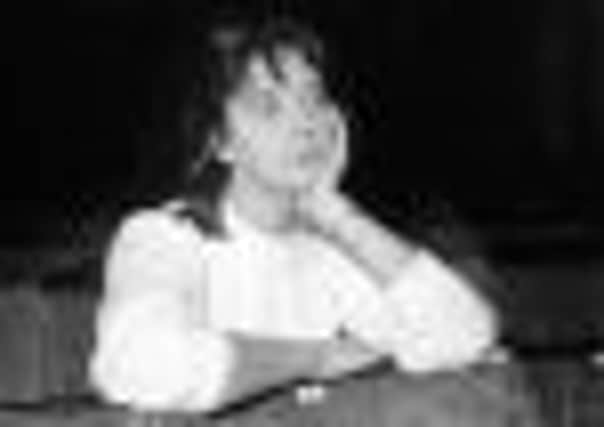Obituary: Shelagh Delaney - Writer of celebrated play about a working-class British schoolgirl, A Taste of Honey


SHELAGH Delaney was a teenager when she wrote A Taste of Honey, which became a landmark in British theatre and cinema in the late 1950s and early 1960s. It broke new ground with its story and characters who were a revelation to polite theatre audiences of the time.
It centred on Jo, a Salford schoolgirl, who lives with a selfish, slovenly, hard-drinking mother. Jo takes up with a black sailor, discovers she is pregnant and sets up home with a gay art student. In a single play, Delaney managed to address head on questions of family responsibility, class, race, gender, sex and sexuality. A Taste of Honey started off as a novel, but Delaney thought a play might be easier. It opened in 1958 and three years later reached a much wider audience on the big screen, with Rita Tushingham, in her first film, playing the girl and Dora Bryan never better as the mother.
Advertisement
Hide AdAdvertisement
Hide AdIt was one of the films that defined that particular chapter in British social history. It won four Baftas, including best British film and best British screenplay, an award Delaney shared with director Tony Richardson.
A Taste of Honey was part of a new wave of “social realist” works by the so-called Angry Young Men, “kitchen sink” dramas with working-class characters, often set in provincial towns. John Osborne’s Look Back in Anger had premiered just two years before the original theatre production of A Taste of Honey.
Delaney was certainly young, but she was female, her protagonist was female and despite everything that happens, neither the character nor the writer seemed particularly angry, for A Taste of Honey possessed a warmth that was lacking in some of the other productions of the time.
“No-one in my play despairs. Like the majority of people, they take in their stride whatever happens to them and remain cheerful,” she said.
It was a landmark not just in terms of British theatre and cinema, but also in terms of British culture and it would resonate down the years.
Morrissey, of The Smiths, said it was virtually the only film of any importance made by British film-makers in the 1960s and one of his inspirations as a songwriter. His song The Night Has Opened My Eyes was a retelling of the Taste of Honey story, using direct quotes, and he used a picture of Delaney on the cover of the album Louder Than Bombs.
Delaney wrote several other plays and screenplays, including Charlie Bubbles (1967) and Dance with a Stranger (1985), which told the story of Ruth Ellis, the last woman executed in Britain. But A Taste of Honey remained her key work.
Delaney was born in Salford to parents of Irish descent. Her father was a bus inspector, who entertained her with stories of army life and took her to the local theatre and cinema. She repeatedly failed the grammar school entrance exams, before eventually getting five O-Levels.
Advertisement
Hide AdAdvertisement
Hide AdShe left school in her mid-teens and worked in various jobs, including shop assistant and usherette. She had however shown early promise as a writer and began writing A Taste of Honey as a novel, but was put off by the demands of producing 70,000 words and the way it would eat into her social life.
After seeing a production of Terence Rattigan’s play Variations on a Theme, she concluded she could do better and decided to rework her material as a play. She took a few weeks and did just that. Joan Littlewood, a key figure in new theatre, recognised her potential and put the play on at her venue, the Theatre Royal Stratford East. Delaney was still only 18 when it opened.
It divided opinion – councillors in Salford did not like it. But there was no doubting its impact, it transferred to the West End, and was soon playing on Broadway too, with Joan Plowright as Jo and Angela Lansbury as the mother. The theme music from the Broadway version was later turned into a song, which was later recorded by The Beatles and included in their debut album Please Please Me in 1963.
Meanwhile Tony Richardson, who had directed the original London production, was in the process of turning it into a movie, shot in black and white which wonderfully captured the North of England locations.
Ken Russell made a TV documentary about her and her hometown. When A Taste of Honey became a big hit Salford councillors asked for the manuscript for the local collection. Delaney told them to get lost and gave it to Littlewood instead.
Her second play The Lion in Love opened in 1960, but was less successful. A book of short stories Sweetly Sings the Donkey appeared in 1963, she wrote the script for Lindsay Anderson’s 1967 short film The White Bus and for Charlie Bubbles, which appeared the same year, with Albert Finney as a bored writer and Liza Minnelli as his secretary.
She continued to write for TV, radio and cinema, but nothing matched A Taste of Honey. She is survived by daughter Charlotte and three grandchildren. BRIAN PENDREIGH